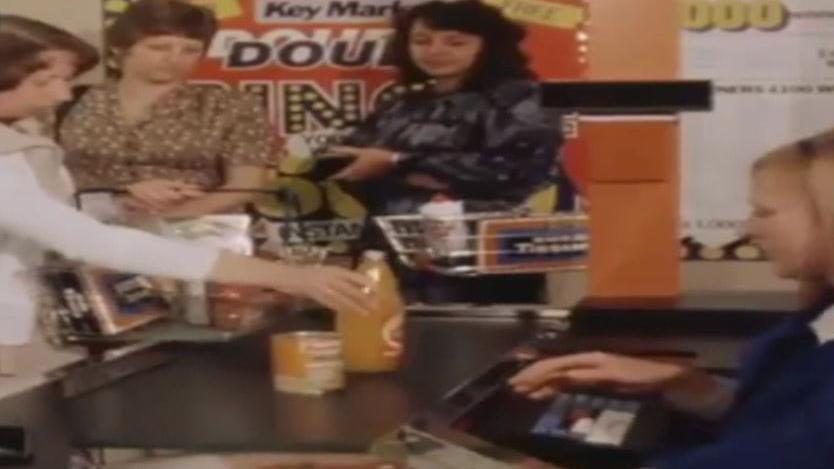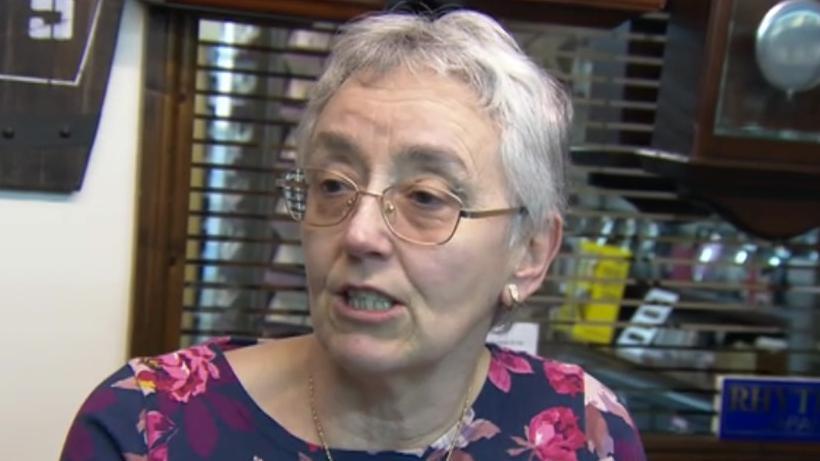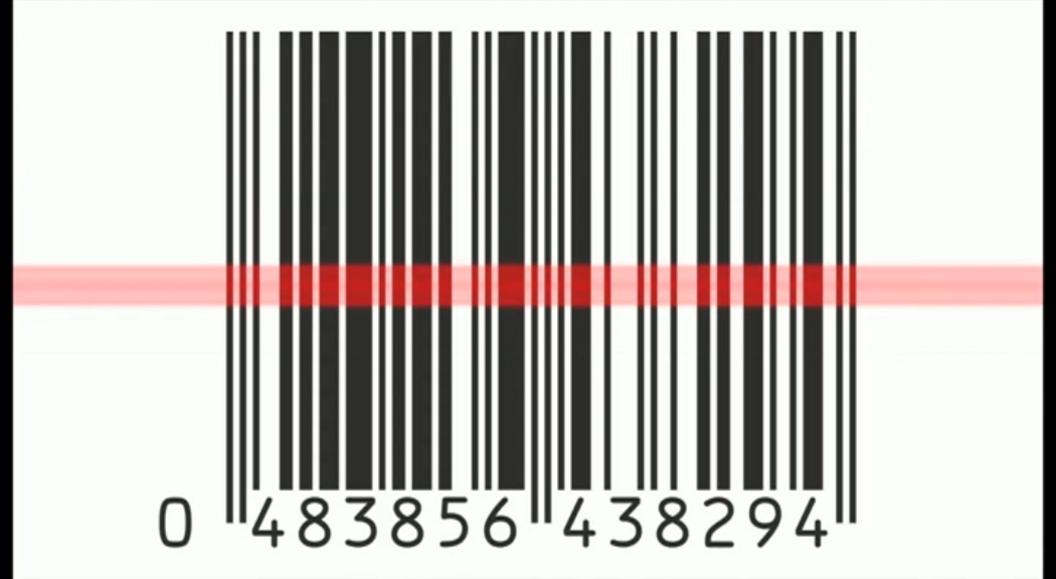Barcodes at 50: The Lincolnshire store that made retail history

Key Markets in Spalding, Lincolnshire, was where the UK's first barcode was scanned in 1979
At a glance
The barcode was invented in the United States in the 1940s
Key Markets, a supermarket in Spalding was the first UK retailer to scan a barcode in 1979
The first item to be scanned at the Lincolnshire shop was a box of teabags
UK barcodes always start with the number 50
- Published
On the 50th anniversary of the now-ubiquitous barcode, did you know a supermarket in Lincolnshire was the first UK retailer to use the technology?
It was on 3 April 1973 that an international agreement was reached over the adoption of the distinctive black lines as the retail industry standard - though that was already several decades after their invention in the United States.
However, it was not until 2 October 1979 that the first barcode was scanned in a UK shop, with Key Markets in Spalding laying claim to the title.
The first item to be scanned? A box of teabags.

Bernie Stennett, owner of a Spalding jewellery shop, continues to shun barcodes for the pen-and-paper method of pricing
Barcodes were invented by Norman Joseph Woodland and his university classmate Bernard Silver in the late 1940s.
But their work was years ahead of its time and it took decades for the invention to make its first appearance in a shop.
The first ever item to be scanned using a barcode anywhere in the world was a packet of chewing gum in an Ohio supermarket in 1974.
It took another five years for them to make the move to the UK, with those famous teabags at Spalding's Key Markets the focus of attention.
On the 50th anniversary of the adoption of the barcode, it seems 21st Century shoppers in Spalding have mixed views about the technology.
One man in the town told the BBC: "You know what you're getting when you scan your barcode."
While another Spalding resident suggested any novelty surrounding the use of barcodes wore off a long time ago: "I've never given them much thought, to be honest."
One woman said she felt sympathy for older people who might not want to self-scan items.

Barcodes were invented in the United States in the 1940s by Norman Joseph Woodland and his university classmate Bernard Silver
Sarah Atkins, marketing director at GS1 UK, part of an international organisation which regulates standards for barcodes, said the technology had transformed the way the world does business.
She said: "Something as simple as a small set of stripy lines makes sure the right product gets to the right place, and now increasingly we can check out and go ourselves."
Ms Atkins added that barcodes contained a wealth of data for retailers.
"It drives the loyalty cards. It allows them to work out what range they should be carrying. It allows them to know what is out of stock, what's possible and how they should price things."
Looking ahead, Ms Atkins said consumers should expect "smart QR codes" - a Quick Response code made up of dots which can contain more data than a barcode - as the next step from the black and white lines first scanned on a packet of teabags in Spalding back in 1979.
"QRs have been around for a long time, but we are going to merge the barcode and the internet - two things that have transformed our lives - and we will end up with smart QRs," Ms Atkins said.
Smart QRs would enable a "plethora" of information to be added to products, she added.
Back in Spalding on the half-century anniversary of the barcode, traders appeared to mostly appreciate their usefulness.
However, Sarah Hallgarth, from Bookmark, grinned as she said: "It's all good - as long as the computer and technology works."
Meanwhile, Bernie Stennett, owner of C.H. Stennett, a third-generation family-run jewellery shop trading in the town for 60 years, simply said: "We don't use barcodes because it's so impersonal."